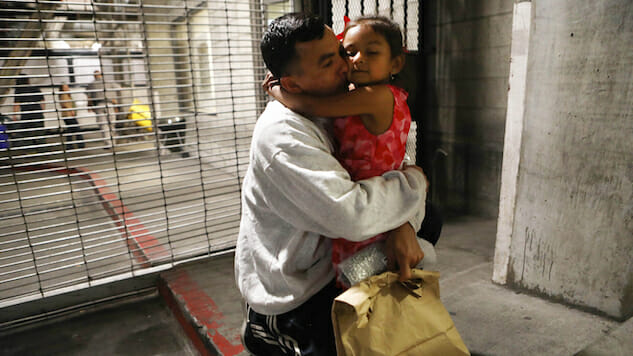Border Protection Agency Bars Lawyers from Entering Children’s Sick Ward at Detention Centers
Photo by Mario Tama/Getty
There is no room for semantic debates around this anymore: The immigrant detention centers at the U.S./Mexico border are concentration camps. If you have any doubts—and you shouldn’t—this Newsweek report will dispel those.
Per the report, several lawyers from the Human Rights Watch were denied access to a children’s sick ward by the U.S. Customs and Border Protection agency. Nicole Austin-Hillery, the U.S. Program Executive Director of the HRW, notes that the CBP’s rationale for not letting the lawyers into the area was out of fear for their health.
“We told them, ‘We don’t care. We’re not concerned about catching a cold,” Austin-Hillery said.
This news comes after Friday’s judicial order that medical officials be granted access to the concentration camps in El Paso and the Rio Grande Valley in order to evaluate the living conditions for children.
-

-

-

-

-

-

-

-

-

-

-

-

-

-

-

-

-

-

-

-

-

-

-

-

-

-

-

-

-

-

-

-

-

-

-

-

-

-

-

-








































